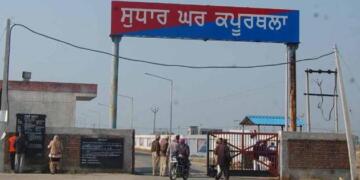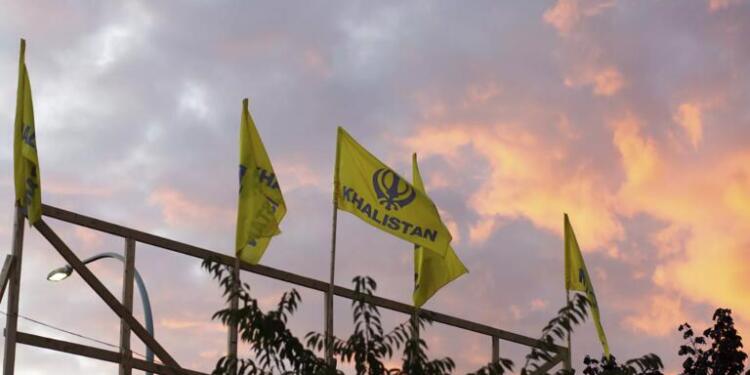The UK Charity Commission has ruled that Gurdwara Sri Guru Singh Sabha in Slough can continue displaying plaques bearing the word “Khalistan,” bringing an end to a lengthy regulatory dispute that began more than five years ago.
An Indian Journalist raised a complaint in 2019 when he noticed a large Khalistan board inside the gurudwara and decided to file the complaint. The commission, which oversees places of worship registered as charities, opened a compliance investigation on the grounds that promoting any political party or state breaches its guidance.
The UK regulator issued an ultimatum to the trustees in December 2024 ordering the removal of the plaques by March 10, 2025. When the plaques remained in place, the issue escalated, prompting meetings between commission officials, Sikh community organisations, and three Sikh MPs, namely Tanmanjeet Singh Dhesi, Preet Kaur Gill, and Jas Athwal in an effort to resolve the deadlock.
However, this move raises speculations about UK pandering to Khalistani elements?
Political vs Religious Significance
After reviewing evidence and consulting stakeholders, the commission concluded that “Khalistan” holds an important religious meaning for many Sikhs, in addition to being associated with a political movement by others. Khalistan in english translates to ‘Land of the Pure’. As the plaques in the Slough gurdwara did not contain messages advocating the creation of a political state, the commission found no breach of its political activity rules for charities.
A spokesperson for the regulator said: “Following substantial review of evidence and consultation with a number of representatives and stakeholders, we have determined the display of the boards in itself not to be in breach of our campaigning and political guidance for charities.”
Dabinderjit Singh, lead executive for political engagement at the Sikh Federation UK, welcomed the decision, noting that “Khalistan” literally translates to “land of the pure” and should not be confused with political slogans such as “Khalistan Zindabad.” He suggested that the ruling effectively permits other gurdwaras to display the word without breaching charity regulations.
Staff at the Slough gurdwara said the two Khalistan plaques have been in place for almost 50 years. The decision is likely to resonate across Britain, as similar inscriptions are already displayed in gurdwaras in Birmingham, Derby, Leicester, and London. For many Sikhs, the word “Khalistan” is part of a broader spiritual and cultural identity. The commission’s ruling not only resolves the long-running dispute in Slough but could also serve as a precedent for how other religious institutions balance expressions of faith with regulatory rules on political neutrality.
This move cannot be timelier. Interestingly, this week Khalistani elements installed ‘Embassy of Khalistan’ at Guru Nanak Sikh Gurudwara at Surrey in Canada. The event also holds symbolism as this was the same gurudwara in whose parking lot premises, Hardeep Singh Nijjar was gunned down.
The symbolism and the optics are hard to ignore and leaves one questioning if there is any relation to UK pandering to Khalistani elements?























